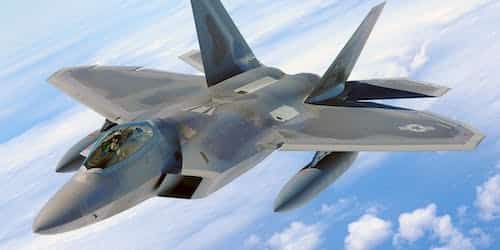The world of aviation is a captivating one, but with great adventure comes a need for protection. Get enlightened on all you need to know concerning aviation insurance. Aviation insurance is tailored to the aviation industry, offering customizable coverage, passenger protection, and other mouth-watering services, especially in compliance with regulations. It provides compensation for medical expenses, legal claims, and property damage while ensuring the safety and protection of passengers, third parties, and property. This article provides a quick guide as you read more.
What is Aviation Insurance?
Aviation insurance is specifically designed for the operation of aircraft and the risks associated with aviation. It differs from other types of insurance and incorporates aviation terminology, limits, and clauses specific to the aviation industry.
Aviation insurance offers several benefits that are crucial for individuals and businesses involved in the aviation industry.
Key Benefits Of Aviation Insurance
#1. Customizable Coverage
Aviation insurance policies can be tailored to meet specific needs and requirements. Insurance providers offer various coverage options, allowing individuals and businesses to choose the most suitable coverage based on their operations, aircraft type, and risk profile.
#2. Protection for Passengers
Aviation insurance includes coverage for passengers on board the aircraft. In the event of accidents or injuries, it provides compensation for medical expenses, disability, or loss of life, offering protection and support to passengers and their families.
#3. Liability Coverage
Aviation insurance includes liability coverage, which protects aircraft owners and operators from legal claims and lawsuits arising from bodily injury or property damage caused by their aircraft. This coverage is essential for protecting assets and mitigating potential financial losses.
#4. Business Continuity
Having adequate aviation insurance coverage ensures business continuity by minimizing the financial impact of accidents, damage, or loss. It allows businesses to recover and resume operations more quickly, reducing downtime and potential revenue loss.
#5. Compliance with Regulations
Aviation insurance is often a legal requirement for aircraft owners and operators. Many countries and aviation authorities mandate certain minimum insurance coverage to ensure the safety and protection of passengers, third parties, and property.
#6. Peace of Mind
Aviation insurance provides peace of mind to aircraft owners, operators, and pilots. Knowing that they are adequately covered against potential risks and liabilities allows them to focus on their operations with greater confidence and security.
#7. Coverage for Ground Operations
Aviation insurance can also extend coverage to ground operations, including hangars, maintenance facilities, and other related property. This protects against risks such as fire, theft, vandalism, and natural disasters that can occur on the ground.
#8. Financial Protection
Aviation insurance provides financial protection against various risks and liabilities associated with aircraft operations. It helps cover the costs of repairs, replacements, or compensation in the event of accidents, damage, or loss of the aircraft.
Aviation Insurance Coverage
Aviation insurance coverage is tailored to the unique risks and operations involved in aviation. There are several different types of aviation insurance coverages available, each offering specific types of protection.
Services Aviation Insurance Covers
#1. Aircraft Liability Insurance
Aircraft liability insurance provides coverage for bodily injury and property damage that may occur as a result of the operation of an aircraft. This coverage is essential for aircraft owners and operators to protect themselves from potential legal liabilities.
#2. Aircraft Hull Insurance
Aircraft hull insurance covers physical damage to the aircraft itself, including damage caused by accidents, fire, theft, or vandalism. This coverage is particularly important for aircraft owners who want to protect their investment in the aircraft.
#3. Passenger Liability Insurance
Passenger liability insurance provides coverage for bodily injury or property damage that may occur to passengers while they are on board an aircraft. This coverage is especially important for commercial airlines and charter operators.
#4. Combined Single Limit (CSL) Coverage
Combined single-limit coverage is a bundled policy that includes both public liability and passenger liability insurance. This type of coverage has a set limit per payout per accident.
#5. Non-Owned Aircraft Liability Insurance
Non-owned aircraft liability insurance provides coverage for bodily injury or property damage that may occur while operating an aircraft that is not owned by the insured. This coverage is important for individuals or businesses that rent or borrow aircraft.
#6. Hangar Insurance
Hangar insurance provides coverage for physical damage to hangars and the contents stored within them, such as aircraft, tools, and spare parts. This coverage protects against perils like fire, theft, and natural disasters.
#7. Aviation Products Liability Insurance
Aviation products liability insurance covers liability for bodily injury or property damage that may be caused by a defective aircraft or aviation product. This coverage is important for manufacturers, distributors, and sellers of aviation products.
#8. Airport Liability Insurance
Airport liability insurance provides coverage for bodily injury or property damage that may occur on airport premises. This coverage is important for airport operators and owners to protect against potential legal liabilities.
Types Of Aviation Insurance
There are various aviation insurance companies available to the market. The choice of insurance company may depend on specific needs, coverage requirements, and geographical location.
Here are some aviation insurance companies
#1. Aerospace Insurance Managers
Founded in 1999, Aerospace Insurance Managers is headquartered in Dallas, TX. They offer aviation insurance coverage for transition pilots, flight schools, charter operations, and airport liability.
#2. Global Aerospace
Global Aerospace is the largest aviation insurance company in the US, with headquarters in Atlanta, GA. They have been providing aviation insurance for over 70 years and offer coverage for general aviation, airline insurance, airports, and aerospace product liability.
#3. Starr Insurance Companies
Starr Insurance Companies is a worldwide leader in aviation insurance solutions. They offer tailored policies to meet the unique needs of the aviation and aerospace industry. Their coverage includes general aviation, airline and aerospace manufacturers, airports, helipads, and more.
#4. Wings
Wings specializes in aviation insurance for commercial and corporate clients. They have been in the industry since 1984 and offer a range of commercial policies, including workers’ compensation coverage.
#5. AIG
AIG is a prominent insurer in the aerospace industry, providing comprehensive aerospace liability coverage. They cover various types of aviation-related professionals, companies, and equipment, including manufacturers, airports, and unmanned aircraft.
#6. Alliance Insurance Brokers
Alliance Insurance Brokers is a company that offers aviation insurance brokerage services. They work with various insurance providers to develop rates and explain coverage options.
#7. AXA XL
AXA XL is a subsidiary of the global insurance and reinsurance company AXA. They are a prominent insurer in the global aviation industry, providing insurance policies to airlines, airports, and aircraft makers.
#8. Gallagher
Gallagher offers aerospace and aviation insurance and consulting services. They develop comprehensive programs that provide better coverage than other aviation insurance companies, including coverage for cyber liability and aviation professional services liability.
BWI Aviation Insurance
BWI Aviation Insurance is a prominent provider of aircraft insurance in the United States. With over 40 years of experience, BWI Aviation Insurance is known as the nation’s leader in aircraft insurance. They offer comprehensive aviation insurance policies to aircraft owners and aviation businesses, helping them manage their risk effectively.
Offerings of BWI Insurance
#1. Customizable Policies
BWI Aviation Insurance provides the option to customize insurance policies based on individual needs, budget, and relevant circumstances or coverage requirements. This allows aircraft owners to tailor their coverage to specific risks and preferences.
#2. Liability Coverage
BWI Aviation Insurance offers liability coverage to protect aircraft owners and operators from potential legal liabilities arising from bodily injury or property damage caused by the operation of an aircraft.
#3. Competitive Rates
BWI Aviation Insurance aims to provide competitive rates for their insurance policies. Standard BWI aviation insurance policies are available for as little as $225 a year for up to $1 million in liability-only coverage.
#4. Expertise in Drone Insurance
BWI Aviation Insurance has been recognized for its expertise in drone insurance. They have been named the Best Drone Insurance Broker for High Coverage Limits by Investopedia.
#5. Aircraft Evaluation
When obtaining insurance from BWI Aviation Insurance, they will inquire about the aircraft being insured, its value, and how it is used. This evaluation helps in determining the appropriate coverage and premium for the specific aircraft.
#6. Aircraft Renters Insurance
BWI Aviation Insurance offers aircraft renters insurance, which provides extra protection for individuals who are borrowing or renting an aircraft. This coverage offers additional peace of mind in case of any mishaps or accidents.
#7. Wholesale Aviation Insurance
BWI Aviation Insurance provides wholesale aviation insurance options. They underwrite aviation insurance policies for clients and offer comprehensive coverage.
#8. Customer Service
BWI Fly, a division of BWI Aviation Insurance, is known for its exceptional customer service. They prioritize providing reliable and responsive assistance to their policyholders.
Types Of Aviation Insurance
There are several different types of aviation insurance available, each offering specific coverage tailored to different needs and requirements. Some of the common types of aviation insurance include
#1. In-flight Insurance
This type of insurance provides coverage for accidents or incidents that occur during flight operations. It includes coverage for emergency medical expenses, emergency evacuation, and search and rescue costs.
#2. War Risk Insurance
War risk insurance provides coverage for damages or losses caused by war, terrorism, or acts of sabotage. It is particularly important for aircraft operators flying in regions with high geopolitical risks.
#3. Airport Property Insurance
Airport property insurance covers damage or loss to airport infrastructure, including runways, terminals, hangars, fuel facilities, and other related property. It typically includes coverage for fire, theft, vandalism, and natural disasters.
#4. Cargo Insurance
Aircraft cargo insurance covers any loss or damage to the cargo. It provides coverage for risks such as theft, damage during loading and unloading, and damage caused by accidents or mishandling during transportation.
#5. Non-Owned Aircraft Insurance
Non-owned aircraft insurance provides coverage for individuals or companies that operate or rent aircraft they do not own. It covers liability for bodily injury or property damage caused by the non-owned aircraft during its use.
#6. Personal Injury Insurance
Personal injury insurance covers bodily injury, disability, or loss of life to pilots, crew members, or passengers resulting from an aviation accident. It provides compensation for medical expenses, loss of income, and other related costs.
#7. Loss of License Insurance
Loss of license insurance provides coverage for pilots in the event they lose their pilot’s license due to medical reasons or other circumstances. It typically offers financial support during the period of license loss.
#8. Ground Risk Hull Insurance
Ground risk hull insurance covers damage to the aircraft while it is parked, stored, or undergoing maintenance on the ground. It includes coverage for risks such as fire, theft, vandalism, and damage caused by natural disasters.
Factors Affecting Aviation Insurance?
When selecting the best aviation insurance, there are several factors to consider.
#1. Coverage Options
Evaluate the coverage options offered by different insurance providers. Consider the specific needs of your aircraft or aviation business and ensure that the insurance policy covers those requirements adequately.
#2. Liability Coverage
Liability coverage is essential in aviation insurance. Assess the liability limits provided by different insurers and ensure they meet your needs. Consider the potential risks and liabilities associated with your operations.
Examine the various insurance companies’ rates and deductibles. Evaluate the deductibles and how they can affect your out-of-pocket costs in the event of a claim, in addition to the premiums’ affordability.
#4. Reputation and Financial Stability
Research the reputation and financial stability of the insurance companies you are considering. Look for companies with a strong track record of reliability and prompt claims settlement. Check customer reviews and ratings to gauge their reputation in the industry.
#5. Experience and Expertise
Consider the experience and expertise of the insurance provider in the aviation industry. Look for companies that specialize in aviation insurance and have a deep understanding of the unique risks and requirements involved.
#6. Customer Service
Assess the quality of customer service provided by the insurance companies. Prompt and efficient customer service is crucial when dealing with claims or policy-related queries. Look for companies that have a reputation for excellent customer service.
#7. Risk Assessment and Safety Programs
Some insurance providers offer risk assessment services and safety programs to help mitigate risks and improve safety practices. Consider insurers that provide such additional services to enhance the safety of your operations.
#8. Additional Coverage Options
Evaluate if the insurance company offers additional coverage options that may be relevant to your specific needs. This could include coverage for hangars, non-owned aircraft liability, airport liability, or aviation products liability.
Who Needs Aviation Insurance?
Aviation insurance is needed by various individuals and entities in the aviation industry, including aircraft owners, operators, pilots, aircraft renters, manufacturers, airport operators, and aviation service providers. It provides coverage for liability, damage, loss, and other risks associated with aircraft ownership, operation, and related services. The specific insurance needs may vary based on the type of operation and regulatory requirements.
What Are Aviation Insurance Functions?
Aviation insurance functions include regulation and standards compliance, providing coverage for aircraft, offering liability protection, managing risks, providing financial protection, ensuring compliance with legal requirements, customizing coverage, and supporting industry growth. These functions help protect individuals and organizations involved in the aviation industry, manage risks, and promote the growth and development of the sector.
What Companies Write Aviation Insurance?
Several companies write aviation insurance, including Aerospace Insurance Managers, London Aviation Underwriters, Old Republic, Starr Aviation Agency, Inc., and BWI Aviation Insurance. These companies offer coverage for various aviation-related risks and have expertise in the aviation insurance market.
What Is The Difference Between Aircraft Liability And Aviation Liability?
Aircraft liability refers specifically to insurance coverage that protects aircraft owners or operators from legal liabilities arising from bodily injury or property damage caused by their aircraft. However, aviation liability is a broader term that encompasses liability risks associated with various aspects of the aviation industry, including aircraft operations, airport operations, aviation product liability, and more.
Who Insures Private Planes?
Private planes can be insured by various insurance companies specializing in aviation insurance. Some notable providers include BWI Aviation Insurance, Wings, USAA, Travers & Associates, and Gallagher USA. These companies offer coverage options tailored to the specific needs of private aircraft owners. It is best to consult with an aviation insurance broker or conduct further research to explore additional options and find the best insurance provider for individual needs.
How Much Is Insurance On A Cessna 172?
The cost of insurance for a Cessna 172 can vary depending on factors such as the age of the aircraft, its value, the pilot’s experience, and the coverage options chosen. Rough estimates suggest that insurance for a Cessna 172 can be around $1,000 per year, but actual costs can vary.
What Does Aviation Insurance Typically Cover?
Aviation insurance typically covers various aspects related to aircraft and aviation operations. It includes coverage for aircraft damage, liability for bodily injury or property damage caused by the insured aircraft, airport and hangar coverage, aviation accident insurance, non-owned aircraft coverage, and public liability insurance. The specific coverage and terms depend on the insurance provider and policy details.
How Much Is Small Airplane Insurance?
The cost of small airplane insurance depends on the type of aircraft, coverage amount, pilot experience, and parking location. Estimates suggest that renters or non-owned aircraft insurance can range from $100 to $500 per year, while small aircraft insurance with liability and property coverage can range from $500 to several thousand dollars per year. Specific costs will depend on individual circumstances and insurance providers.
Can I Fly A Plane Without Insurance?
While it is possible to fly a plane without insurance, it is generally not recommended. Aviation insurance provides important coverage for potential liabilities and damages that may occur during flight. The decision to fly without insurance is a personal one, but it is important to consider the potential risks and consequences. Some aircraft owners may choose to forego hull insurance (coverage for the aircraft itself) but still maintain liability insurance. However, operating without insurance may have limitations and consequences.
Do You Need Insurance As A Private Pilot?
Private pilots are generally required to have some form of private aircraft insurance coverage to comply with FAA regulations. While the specific insurance requirements depend on the country and the type of flying being conducted, private pilots should have insurance coverage to protect themselves, their passengers, and their aircraft from potential liabilities and damages. Non-owned aircraft insurance, also known as renter’s insurance, is often recommended for private pilots who rent or borrow aircraft.
Conclusion
Aviation insurance offers a range of coverages tailored to the unique risks and operations involved in aviation. These coverages include aircraft liability insurance, aircraft hull insurance, and passenger liability insurance. Each coverage provides specific protection against potential liabilities and damages related to aviation operations. They offer coverage for transition pilots, flight schools, airline insurance, airports, and aerospace product liability. BWI Aviation Insurance is a leading provider of aircraft insurance in the United States. When selecting the best aviation insurance, it is important to consider factors.
- How Much Does Small Business Insurance Cost: 2023 Guide
- 10 Best Paying Jobs in Life Insurance In 2023-2024
- TOP 11 BEST BUSINESS INSURANCE BROKERS 2023
- Cheap Small Business Insurance: Best of 2023






